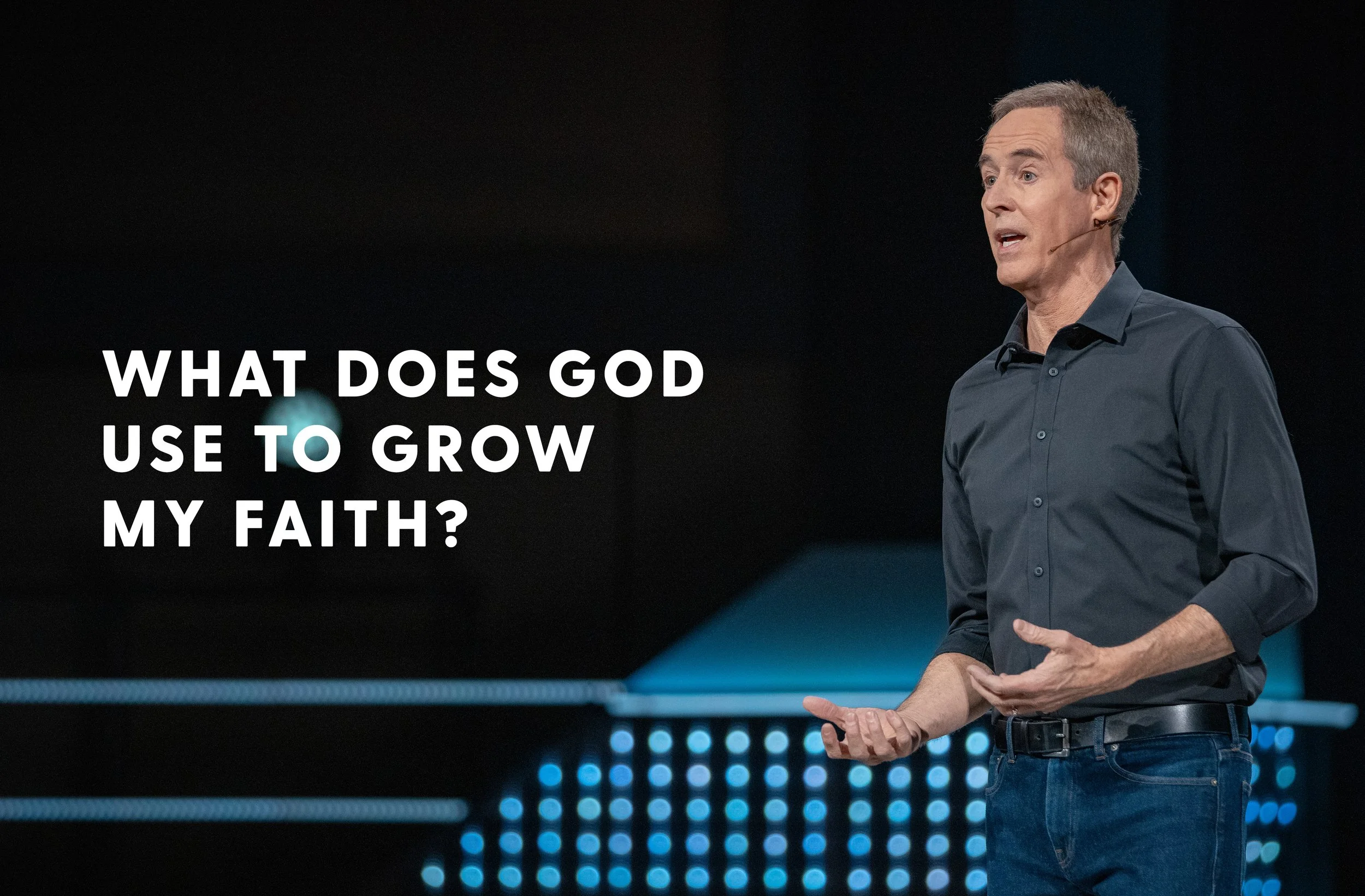What Does God Use To Grow My Faith?
Watch Video.
Additional Insights
Read Philippians 1:3–6.
“I thank my God every time I remember you. In all my prayers for all of you, I always pray with joy because of your partnership in the gospel from the first day until now, being confident of this, that he who began a good work in you will carry it on to completion until the day of Christ Jesus.”
Paul’s letter to the church in Philippi begins with this message of thanksgiving and encouragement. It was a message that the believers there likely eagerly received as they faced the challenges growing in their faith in the midst of challenging circumstances. Circle the word confident. Paul was confident that despite his circumstances (facing trial and imprisonment), and despite the circumstances of the Philippians (persecution, division in the church, questions about faith), that God would be faithful. God began a good work in each of us when we received Jesus as our Savior. It is God who continues that work, which we often see evidence of through the five faith catalysts. He will carry on that work as we grow closer to him. He will complete that work until we are with him in eternity. Our role is to have confidence despite our circumstances, and to leverage these faith catalysts for the benefit of others as we learn and mature in our own faith journeys.
Think About It
Practical Teaching: Many people connect with certain teachers or teaching styles based on their personality. Do you enjoy a classroom setting where you work through the Bible together? Do you like to listen to podcasts? Maybe you enjoy hearing sermons or working through a workbook by hand? Think about a time when you really felt that you were learning in a tangible way. How can you seek learning in this mode more frequently?
Providential Relationships: Sometimes these relationships come to us in times of need, but usually we are building them intentionally over the course of time. Who have you invited into your life to know you well? Are you lacking the kind of community and relationships that help you grow and build you up? What is one step you could take to pursue those relationships?
Private Disciplines: If you’re intimidated by the prospect of daily time with God, start by using a tool that helps you determine your spiritual pathway. When you connect with him in a way that feels natural to you, often your desire to connect more frequently will grow. What is one way that you know you connect with God? Have you ever had a rhythm spending time with him this way?
Pivotal Circumstances: Circumstances that are beyond our control often lead to the most growing seasons of our lives. What is something that you’ve learned about life or about God’s faithfulness from walking through a difficult time? Do you know anyone whom you admire for their faithfulness despite their circumstances? To what do you attribute their ability to do so?
Personal Ministry: If you have struggled with the desire to “go deeper” in your faith but don’t know where to start, experiencing personal ministry through service might be your next step. What age group or ministry at your church interests you most? What area of the church has impacted you most throughout your life? Do you have a skill or talent that could be applied to ministry? You probably don’t have time to volunteer, but creating the margin to do so will change your life.
Apply It
This week, explore each Faith Catalyst in more depth.
For Group Discussion (If Desired)
Play the ‘Name 5 in 5’ game in a group. Take five minutes and briefly describe one person, place, or event for each of the five faith catalysts. At the end of five minutes, take time to ask and answer questions based on the catalysts that you’ve experienced in your life. This is a great way to share about your faith journey and learn about others.


